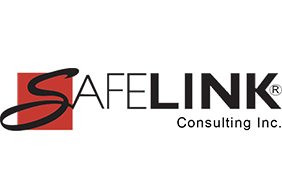The nation has been plagued by devastating bacterial infections caused by contaminated dental unit waterlines. In the state of Georgia, these infections hit hard, affecting nearly 30 children and leaving a lasting impact on their lives. In response to these tragic events, the Georgia Dental Board has taken swift and decisive action to enhance infection control practices in dental offices. Continue reading to discover the latest updates on the continuing education (CE) requirements for licensed dental professionals in Georgia.
For decades, the Centers for Disease Control and Prevention (CDC) has provided guidelines regarding dental unit waterlines. However, since the CDC lacks regulatory authority, many dental professionals simply regarded these guidelines as mere suggestions, rather than enforceable requirements or laws. Tragically, this lack of serious consideration resulted in numerous innocent individuals falling ill. Fortunately, most states have taken action to rectify this situation by incorporating the CDC guidelines on infection control into their state regulations, codes, or laws.
Georgia is among the proactive states that have embraced this necessary change. Not only have they adopted the CDC Guidelines into their Dental Practice Act, but the Georgia dental board has also taken additional steps to enhance infection control practices. Effective January 1, 2024, it is now mandatory for licensed dentists and hygienists in Georgia to complete 2 hours of continuing education credits on infection control every two years. Furthermore, at least one of these hours must include dental unit waterline safety. It is important to note that the total number of continuing education hours has not increased; rather, the focus of the content has been refined. Knowing the requirement is one thing, but understanding it is another, and the dental board in Georgia understands that education is key to understanding why regulations are in place.
Currently in Georgia, dentists must complete 40 hours of continuing education every two years and dental hygienists must complete 22 hours of continuing education every 2 years. The new requirements do not add hours to this, just the focus of a couple of the hours. It is important to note that the 2 hours in infection control do not replace OSHA requirements.
Rule 150-3-.09 Continuing Education for Dentists and Rule 150-5-.05 Requirements for Continuing
Education for Dental Hygienists Vice-President Mattingly stated that the purpose of these two (2) rule amendments is to increase dental and dental hygiene licensee education and training in the area of infection control and infection control practices. Dr. Reznik commented that he wanted to make sure people understood this does not replace OSHA requirements.
Learn more about sterilization errors made in dentistry.
Discover more about how to achieve OSHA compliance for the dental practice or dental lab.
Learn more about what SafeLink Consulting can do to help your business with compliance services, including safety compliance, to meet OSHA training requirements and quality system consulting to meet FDA compliance. Contact us for an OSHA consultation.
Get notification when new regulatory compliance training courses are added plus upcoming events by subscribing to our email news.








